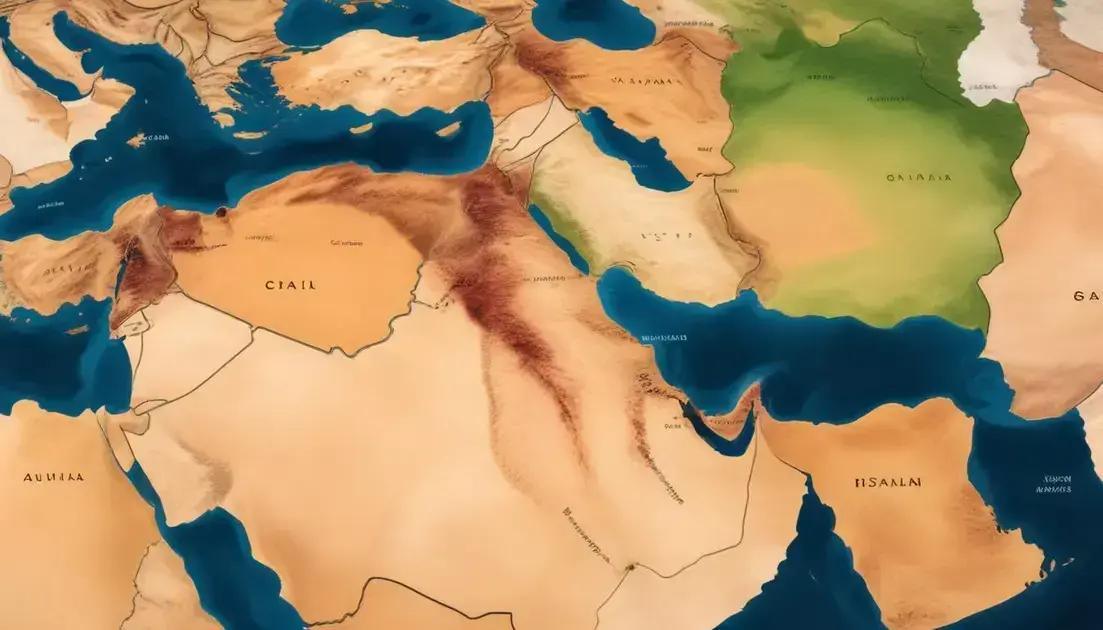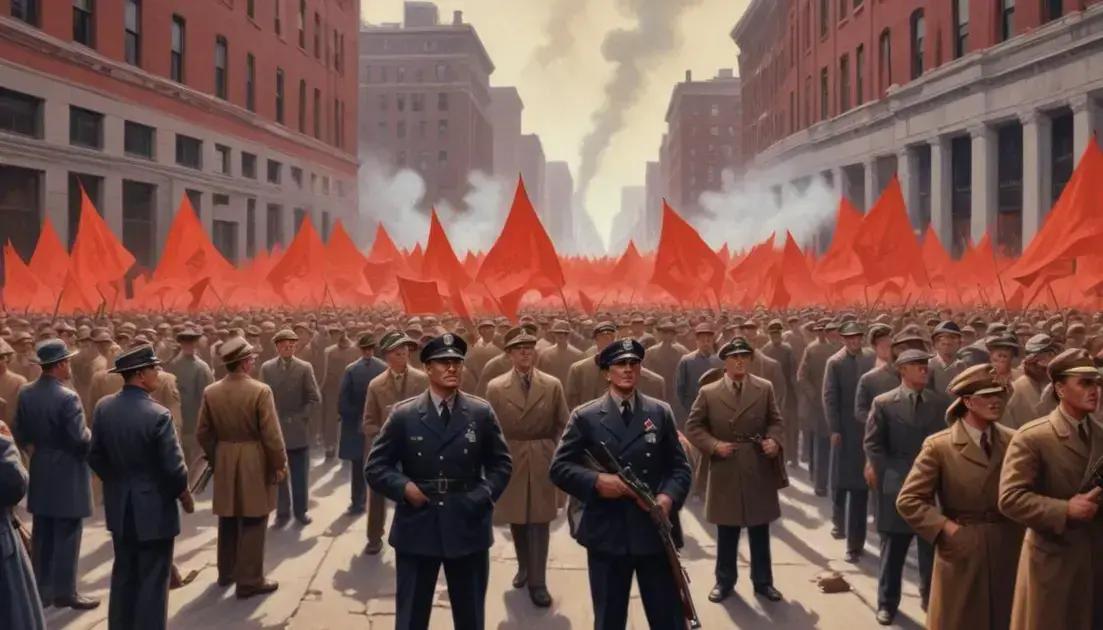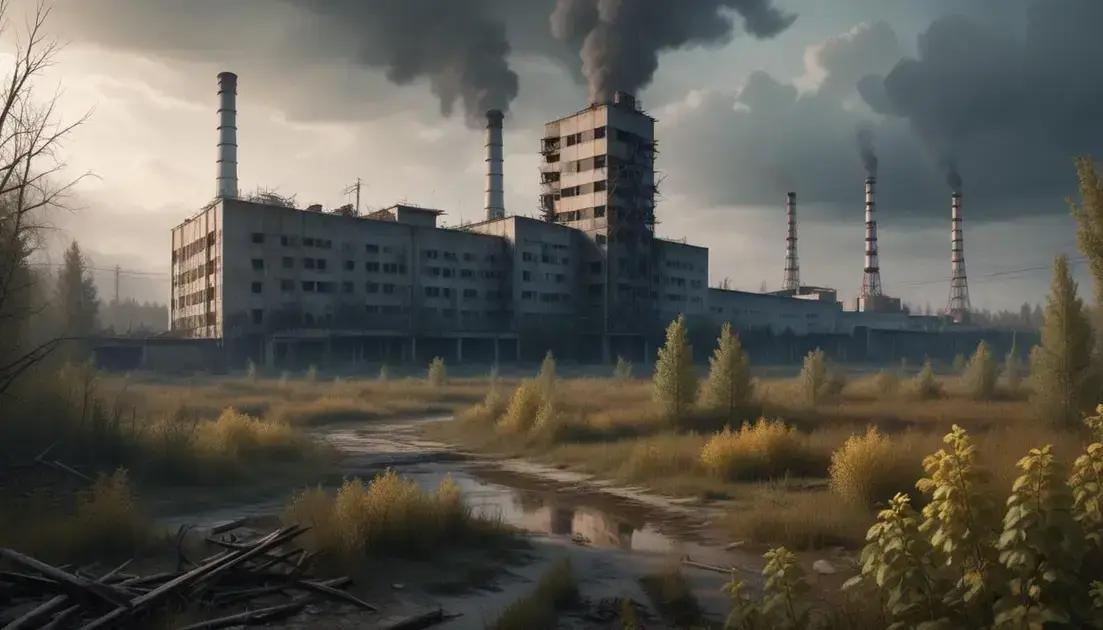
Oil, Faith, and Power: The Middle East from Cold War to Today
The Middle East plays a crucial role in global geopolitics, primarily due to its oil resources. Oil influences conflicts, alliances, and international relations in the region. The future of Middle Eastern politics will likely involve renewable energy shifts and growing youth movements advocating for democracy and human rights. These developments will reshape the political landscape, addressing challenges like inequality and fostering stability while maintaining a focus on the importance of oil resources.
In the world of geopolitics, **Middle East** has become a pivotal term, shaping discussions on power and oil influences. Ever wondered why?
The Historical Context
The historical context of the Middle East is deeply intertwined with oil politics. For decades, oil has not just been an energy source; it has influenced wars, economies, and alliances.
Back in the early 20th century, major oil discoveries transformed countries like Saudi Arabia and Iran. These findings made the region a focus for global powers. Countries rushed to establish control over oil reserves, shaping political dynamics.
During the Cold War, the Middle East became a battlefield for influence. The United States and the Soviet Union supported different regimes based on oil interests. This tug-of-war created lasting impacts on local populations.
In the 1970s, the OPEC oil embargo marked a new chapter. It showcased how dependent the world had become on Middle Eastern oil. Suddenly, prices skyrocketed, leading to economic upheaval globally.
Understanding this history helps us see why the Middle East remains crucial today. Oil continues to fuel conflicts and diplomacy, making it a hotspot for geopolitical strategies.
Geopolitical Strategies
Geopolitical strategies in the Middle East revolve around control and influence over oil resources. Countries in the region leverage oil to gain power and forge alliances.
For instance, nations like Saudi Arabia use their vast oil reserves to influence global markets. They can adjust production levels, impacting prices worldwide.
Countries often form alliances based on energy needs. The United States has historically supported oil-rich monarchies to counterbalance rivals. This strategy strengthens ties but can lead to tensions.
Moreover, the Middle East has been a battleground for proxy wars. Powers like Iran and Saudi Arabia back different groups to expand influence. These conflicts often have roots in religious and cultural differences.
The strategic importance of the Middle East isn’t just about oil. It’s also about trade routes, security, and stability. Control over vital waterways like the Strait of Hormuz is crucial for global oil transport.
Given these factors, geopolitics in the Middle East remains complex. The interplay of local and international interests continually shapes its future.
Oil’s Role in Conflicts
Oil’s role in conflicts is significant, especially in the Middle East. Many wars and disputes center around who controls these valuable resources.
For example, the Gulf War in the early 1990s was sparked by Iraq’s invasion of Kuwait. This conflict was largely about controlling Kuwait’s oil reserves. The U.S. and its allies intervened to protect access to this essential resource.
Additionally, ongoing tensions between Iran and Saudi Arabia often relate to oil. Both countries aim to dominate the region, impacting global oil prices.
Moreover, militias and terrorist groups sometimes exploit oil as a funding source. By controlling oil fields, they finance their activities, complicating peace processes.
The struggle for oil doesn’t just fuel wars; it also shapes political alliances. Countries often support regimes based on their oil wealth. This can lead to instability in the region, affecting many lives.
In summary, oil remains a key factor in Middle Eastern conflicts. Its influence ripples across politics, economies, and social structures. Understanding this relationship gives us insight into regional dynamics.
The Future of Middle Eastern Politics
The future of Middle Eastern politics hinges on several factors, including energy, social movements, and international relations. As oil remains a crucial resource, its influence on politics is likely to continue.
Renewable energy is changing the game. As countries invest more in solar and wind power, oil dependence might decrease. This shift can lead to less tension over resources and change alliances.
Social movements are also on the rise. Young people in the region are calling for more democratic governance and human rights. These voices can shape future policies and create a different political landscape.
Moreover, international relations are evolving. Countries that once had strict ties to the West are re-evaluating their alliances. This change could lead to new partnerships and strategies.
However, challenges remain. Issues like economic inequality and extremist groups can disrupt progress. Stability in the region depends on addressing these long-standing concerns.
As we look ahead, it’s clear that the Middle East is at a crossroads. The choices made today will significantly shape the region’s political future.
Conclusion
In conclusion, understanding the Middle East is crucial for grasping current global dynamics. The region’s geopolitical strategies revolve around oil and influence, shaping conflicts and alliances.
As we look to the future, social movements and renewable energy will play important roles in reshaping politics. Young voices calling for change can lead to new political landscapes. By addressing challenges like inequality and instability, the Middle East can move toward a brighter and more peaceful future.
Overall, staying informed about these developments helps us appreciate the complexities and potential of the Middle East. It’s a region filled with history, challenges, and hope for the future.


